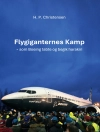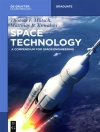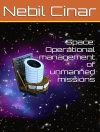Humans and space When faced with the issue of space exploration, one generally has an idea of the ?elds of study and disciplines that are involved: technology, physics and chemistry, robotics, astronomy and planetary science, space biology and medicine, disciplines which are usually referred to as the ?sciences?. In recent discussions, the human element of space exploration has attracted more and more the interest of the space sciences. As a consequence, adjacent disciplines have gained in relevance in space exploration and space research, in times when human space ?ights are almost part of everyday life. These disciplines include psychology and sociology, but also history, philosophy, anthropology, cultural studies, political sciences and law. The cont- bution of knowledge in these ?elds plays an important role in achieving the next generation of space exploration, where humans will resume exploring the Moon and, eventually, Mars, and wherespacetourism isbeginningtobedeveloped. With regard to technology, one might soon be prepared for this. Much less is this the case with space exploration by humans, rather than by robots. Robotic explorations to other planets across the solar system have developed in the past 50 years, since the beginning of the ?space age? with the presence of humans in nearby space and the landing on the Moon. Space exploration is now not only focused on technological achievements, asitsdevelopmentalsohassocial, culturalandeconomicimpacts. This makes human space exploration a topic to address in a cross-disciplinary manner.
Tabla de materias
Setting The Scene.- Summary.- Micro-organisms and extraterrestrial travel.- Future encounters: learning from the past?.- Are we alone? Searching for life in the universe and its creation.- What’s the story, mother? Some thoughts on Science Fiction Film and Space Travel.- Aiming ahead: next generation visions for the next 50 years in space.- Can We Compare?.- Summary.- Inter caetero and outer space: some rules of engagement.- Celestial bodies: Lucy in the sky.- Why we had better drop analogies when discussing the role of humans in space.- ’Spatiality’ — Space As A Source of Inspiration.- Summary.- Missing the impossible: how we talk and write about space.- Towards a new inspiring era of collaborative space exploration.- First Odyssey: Humans in Earth Orbit: what Effect does It Have?.- Summary.- With the eyes of an astronaut.- Human spaceflight, technology development and innovation.- Human—machine cooperation in space environments.- Space law in the age of the International Space Station.- Second Odyssey: Humans in Space Exploration: What Effects Will It Have?.- Summary.- Humans — more than the better robots for exploration?.- Humans leaving the Earth — a philosopher’s view.- Human spaceflight as a matter of culture and national vision.- The need of a legal framework for space exploration.- Third Odyssey: Humans Migrating the Earth: How Will It Affect Human Thought?.- Summary.- Mars as a place to live? Past, present and future.- Philosophical and religious implications of extraterrestrial intelligent life.- ET culture.- The Vienna Vision on Humans in Outer Space.- Humans in Outer Space.












